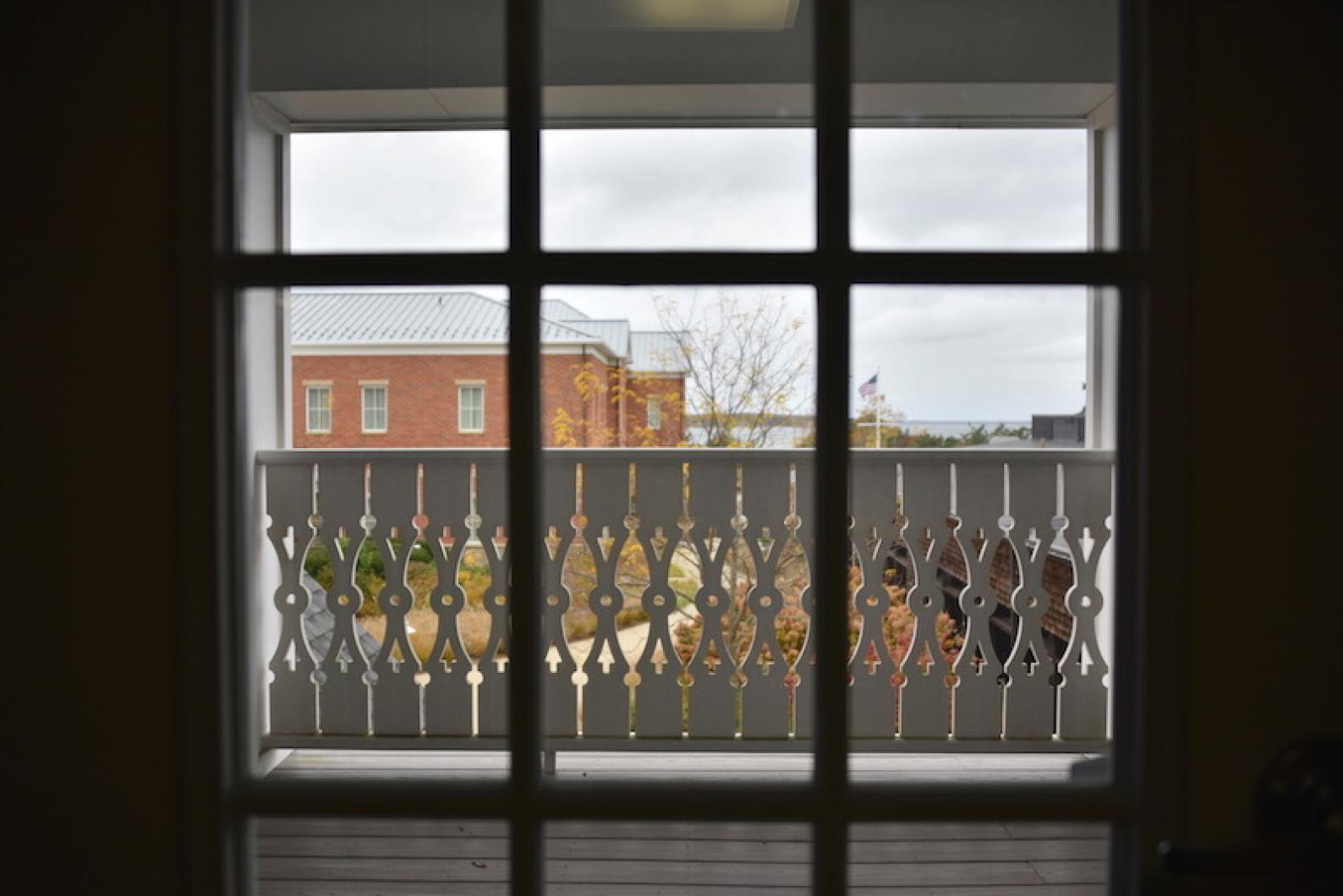Two traveling certified nursing assistants (CNA's) stationed at the Martha’s Vineyard Hospital’s Windemere long term care facility have tested positive for Covid-19, hospital officials announced Tuesday afternoon.
The CNA's are the first individuals connected to Windemere — the Island’s only nursing home — to test positive for the virus since the pandemic began, prompting the hospital to close the building to the public and cut back all non-essential staff.
At an impromptu Zoom press briefing Tuesday afternoon hosted by hospital CEO Denise Schepici and head of operations Claire Seguin, hospital officials confirmed the positive tests and said that no residents or other staff members have tested positive for the virus, although comprehensive testing of individuals connected to the facility is still underway.
“We’ve had two traveling nursing assistants test positive for Covid-19,” Ms. Schepici said. “The good news is that none of the 40 residents of Windermere or other staff have tested positive.”
The nursing home, which is annexed to the hospital building, regularly tests both staff and patients for the virus on a weekly basis as mandated by state public health laws for long-term care facilities, which have been ravaged by the virus throughout the pandemic, particularly during the initial surge in March and latest case rise in late November. Windemere has many residents with impaired cognitive abilities. While most residents live alone, some do share rooms, Ms. Schepici confirmed.
Earlier this summer, comprehensive state-funded testing of Windemere staff and residents turned back no positive results among individuals connected to the facility.
But with cases spiking across the country, state and Island, Ms. Schepici explained the timeline of recent events regarding Windemere on Tuesday, confirming that both traveling CNA's had received negative tests prior to testing positive for the virus. The first employee tested negative on Nov. 22 and then tested positive on Dec. 2. The second employee tested negative on Nov. 30 and was retested on Dec. 3, receiving a positive test on Dec. 5.
Ms. Schepici said both CNA's are asymptomatic. The hospital has since stopped all visitors and nonessential staff from entering the Windemere building, placed the entire second floor of resident care — where the employees were stationed — in strict quarantine, as well as required all staff to be in full PPE with respirators at all times.
“All residents and family members of the residence were immediately notified,” Ms. Schepici said. “We are continuing our testing of our residents and our staff, and will continue to do so following our hospital and stay protocols. This goes to show that virus spread can happen, even with the tightest restrictions we have placed on Windemere from the start of the pandemic.”
Before the positive tests, Windemere was allowing one visitor per patient at a time into the facility. Ms. Schepici said the changes would continue until the window of expected positivity closes, which could be as long as two weeks.
According to Ms. Schepici, one of the assistant nurses traveled from the Island outside of work. Windemere traditionally uses a combination of full-time and traveling staff at the facility, with employees coming to the Island for approximately three-month shifts. Ms. Schepici said the certified nursing assistants also lived in shared housing and worked on the same unit, suggesting that the two cases were connected to one another.
“They had traveled off-Island,” Ms. Schepici said. “Two of them were living in shared housing. They’ve all been separated. None of the roommates have tested positive.”
Ms. Schepici said staffing at the facility was currently adequate, and cautioned against travel, especially considering asymptomatic case spread.
Windemere has faced significant budget shortfalls and a declining census for the past two years, prompting the hospital to eye land for a new facility and nursing home model. Ms. Schepici described morale among residents as “generally good” and said the staff was working hard, although she noted that the inability to see loved ones would be difficult.
“The staff have been troopers,” Ms. Schepici said. “Staff-to-patient interaction is important and those caregivers are working hard to make it as normal as possible."
This article has been updated to reflect the difference between nurses and certified nursing assistants (CNA's).







Comments (4)
Comments
Comment policy »